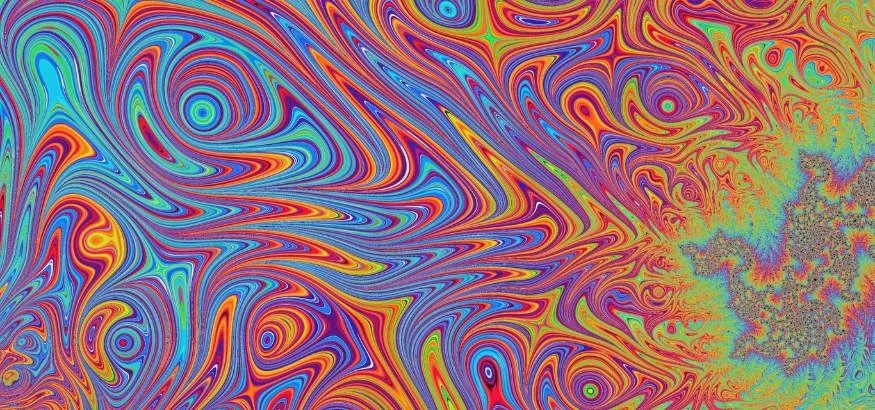
Anxiety
What is anxiety?
Anxiety can be characterized by intense, excessive, and persistent worry and fear. Anxiety, in stressful situations, can be normal and productive. However, anxiety becomes problematic and identified as a mental health disorder when feelings are all-consuming, and interfere with daily functioning. Some examples of anxiety disorders include Generalized Anxiety Disorder, Obsessive-Compulsive Disorder (OCD), Panic Disorder, Post-Traumatic Stress Disorder (PTSD), and Social Phobia (or Social Anxiety Disorder).
What does anxiety feel like?
Anxiety symptoms include feeling nervous, restless, or tense. Individuals with anxiety may experience feelings of impending danger or doom. Individuals with anxiety, panic disorder, or post-traumatic stress disorder (PTSD) may have physiological responses to triggers of their anxiety, such as having an increased heart rate, breathing rapidly (hyperventilation), sweating, and trembling. Individuals with anxiety disorder can have sleep disturbances as well. They tend to have trouble concentrating or thinking about anything other than the present worry.
Generally speaking…
How is anxiety treated?
Traditionally, treatment for anxiety entails a combination of pharmacology and psychotherapy in the form of individual, family, and group therapy.
At Philadelphia Integrative Psychiatry
We treat anxiety differently.
Much like any condition we treat at our practice, we approach anxiety from all angles. Our integrative team uses a myriad of therapies, nootropics, and medications to create individual treatment plans that are tailored to each client. Our therapists utilize innovative anxiety treatments such as:
EMDR (Eye Movement Desensitization and Reprocessing) to address past traumatic experiences that results in the individual constantly being in a state of high arousal .
In addition, Neurofeedback is a computer-based intervention that allows the clinician to re-train brain functioning and utilize it for our clients with anxiety. An emerging treatment is psychedelic assisted therapy.
Psychedelics often make it easier to talk through your trauma and progress in your treatment. They help the patient break through defense mechanisms and feel more open and trusting when sharing traumatic experiences.
Our lead psychiatrist, Dr. David Danish, is a registered physician with the medical marijuana program in PA and issues certifications to eligible Pennsylvanians. Medical Marijuana can be effective in treating anxiety disorders in some patients.
For those seeking specific anxiety treatment in Pennsylvania, we provide comprehensive and individualized care. Our commitment to offering the best treatment for anxiety includes exploring innovative approaches like virtual anxiety treatment and concierge anxiety treatment. We believe in an integrative anxiety treatment model, ensuring that every aspect of a client's well-being is addressed. If you're looking for effective treatment for anxiety attacks, consider our diverse range of therapeutic options tailored to meet your unique needs.
Our providers specialize in treating anxiety
Related posts from our blog:
A single dose of MM120, an LSD-based treatment, showed rapid and lasting reductions in anxiety symptoms in a new Phase 2b study. Learn what this means for the future of anxiety care.
Dr. Danish explores effective care plans for managing social anxiety disorder (SAD) including a combination of Cognitive Behavioral Therapy (CBT) and pharmacotherapy.
AI is transforming mental health care by predicting recovery in generalized anxiety disorder (GAD). Learn how machine learning is shaping the future of GAD treatment at Philadelphia Integrative Psychiatry.
One of the medications our medication management team utilizes for patients with ADHD is Onyda X — a once-daily, non-stimulant liquid formulation approved for ADHD treatment in children aged six and older.
Originally developed as an antidepressant, amitriptyline has been found to be effective for multiple disorders beyond depression, including anxiety disorders, chronic pain, and sleep disturbances. By increasing levels of serotonin and norepinephrine in the brain, amitriptyline helps regulate mood, alleviate pain, and improve sleep quality.
In this post, we’ll explore why scaling back your social media can boost your brain health, lift your mood, and ease anxiety, all backed by the latest findings and our clinical expertise.
Discover how behavioral activation and interpersonal connection through InterRhythmic Care significantly improve depression and anxiety symptoms while enhancing social functioning.
Fluvoxamine, commonly known by its brand name Luvox, has evidence for treating OCD, anxiety, and depression across all ages. This post provides information about mechanism, efficacy, dosing, and possible side effects.
Beta blockers are a class of medications that can be effective in managing symptoms of anxiety, particularly when the anxiety is linked to specific events or situations.
Seroquel (Quetiapine) is a versatile medication with applications extending beyond its primary indications. Its off-label use for anxiety and other conditions is supported by clinical experience and some research studies.
At Philadelphia Integrative Psychiatry, we are thrilled to introduce Transcranial Magnetic Stimulation (TMS) as a new treatment option for a range of mental health disorders including depression, anxiety, OCD, addiction, ADHD, and more.
The insights provided by the Global Drug Survey and the practical guidelines developed by experts like Professor Winstock empower Dr. Danish and his team at Philadelphia Integrative Psychiatry to make informed and balanced decisions regarding marijuana use among teens and young adults
By embracing the transformative potential of psychedelic and ketamine-assisted psychotherapies, Philadelphia Integrative Psychiatry is at the forefront of providing comprehensive, personalized treatment plans that address the multifaceted needs of our patients.
The 4-7-8 breathing technique is a simple, effective tool that can be used anywhere to help alleviate anxiety. Regular practice can enhance its benefits, making it a valuable component of daily stress management.
The 5-4-3-2-1 Coping Technique is a simple and effective grounding exercise used to combat anxiety and help individuals stay present and focused.
Lexapro, the brand name for escitalopram, is a widely prescribed antidepressant medication belonging to the selective serotonin reuptake inhibitor (SSRI) class.
Doxepin is a medication primarily used in the treatment of depression and anxiety disorders. This handout aims to provide you with an overview of Doxepin, including its effectiveness, dosing guidelines etc.
Buspirone offers a safer alternative for treating anxiety with a lower risk of abuse and dependence. It's important for patients to work closely with their healthcare provider to find the most effective dose and to monitor for side effects or interactions with other medications.
When starting a new antidepressant, patients often wonder how they can enhance the medication's effectiveness and improve their overall mental health.
Viibryd (vilazodone) is an FDA-approved medication for treating major depressive disorder (MDD) in adults, known for its faster action compared to many other antidepressants.







































































